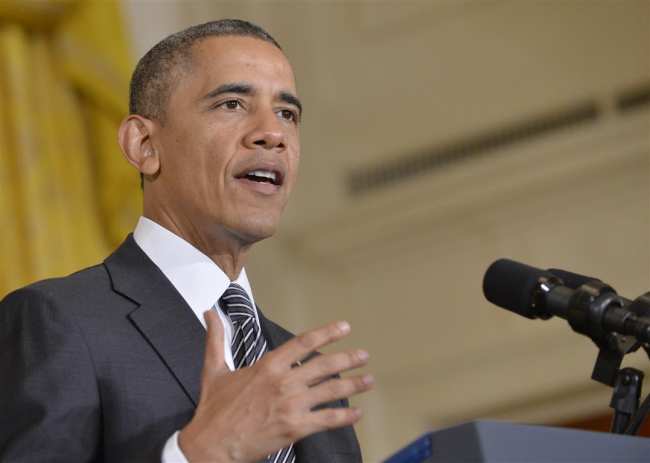US President Barack Obama has laid out a new doctrine of using “military force unilaterally” without permission when its own interests are at stake, but turning to “collective action” when Washington is not directly threatened.
America would still lead using “military force unilaterally if necessary”, he told graduates at the US Military Academy at West Point, New York, but would avoid the “costly mistakes” of the past by “collective action” with allies abroad.
“Here’s my bottom line: America must always lead on the world stage. If we don’t, no one else will,” he said.
“But US military action cannot be the only — or even primary — component of our leadership in every instance.”
Answering critics who have accused him of following a passive foreign policy, the President laid out the new Obama doctrine of using “military force unilaterally if necessary, when our core interests demand it.”
“International opinion matters, but America should never ask permission to protect our people, our homeland, or our way of life,” Obama said amid applause.
“On the other hand, when issues of global concern do not pose a direct threat to the United States,” he said “we should not go it alone.”
“Instead, we must mobilise allies and partners to take collective action.”
“We have to broaden our tools to include diplomacy and development; sanctions and isolation; appeals to international law; and, if just, necessary and effective, multilateral military action,” he said.
For the foreseeable future, “the most direct threat to America at home and abroad remains terrorism,” Obama said. “But a strategy that involves invading every country that harbours terrorist networks is naïve and unsustainable.”
Advocating a shift in US counter-terrorism strategy “to more effectively partner with countries where terrorist networks seek a foothold, he said: “today’s principal threat no longer comes from a centralized Al Qaeda leadership.”
“Instead, it comes from decentralised Al Qaeda affiliates and extremists, many with agendas focused in countries where they operate.”
Obama advocated developing “a strategy that matches this diffuse threat — one that expands our reach without sending forces that stretch our military too thin, or stir up local resentments.”
Small-scale capture and drone operations by the US military would continue to be used, but with increased transparency, he said.
Obama’s only reference to India came in the context of a world “changing with accelerating speed” where “from Brazil to India, rising middle classes compete with us, and governments seek a greater say in global forums.”
Commenting on Obama’s speech, Richard N. Haass, President of Council on Foreign Relations, a leading US think tank, suggested it “lacked a clear strategic rationale.”
“It was an attempt to essentially carve out a form of involvement in the world that avoided any and every excess, but with one or two exceptions, it didn’t provide any specifics.”
Ahead of the speech Haass had offered 12 Ideas to fix US foreign policy, including reaching out to India’s recently-elected government.
“A joint declaration in which Congress and the president welcome the new prime minister and expressed a commitment to closer US-Indian relations would be one way to start.”
“So, too, would suggesting regular, high-level consultations on economic and strategic issues,” he wrote.
Haass also suggested that with Afghanistan set to have a new government, US should “re-establish a regional diplomatic mechanism that includes its immediate neighbours.”
These should include “Iran, which has a stake in a stable Afghanistan, as well as Russia and India to increase the odds the new government does not fail.”
